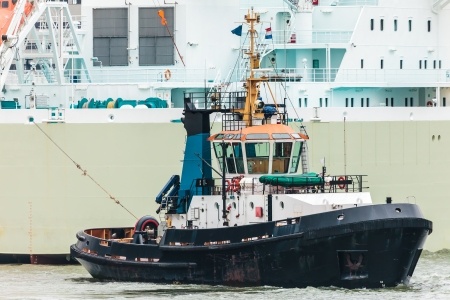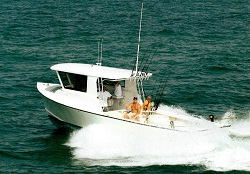Towing and Salvage Claims

Every year, hundreds of boaters discover first-hand the difference between contract towing and salvage. The discovery is typically made when the surprised boat owner receives a bill for a salvage reward that is a significant percentage of the value of his vessel, as opposed to a bill for towing services. The typical towing bill is based upon the hourly-rates of the towing company. While such bills can be considerable, they will usually pale by comparison to a bill for a salvage reward.
The fundamental incentive driving the law of marine salvage has been to provide a reward for salvors who voluntarily come to the assistance of vessels in distress in order to save persons and property from destruction.
In order to claim a salvage reward, the salvor must meet three requirements. There must be (1) a marine peril, (2) service voluntarily rendered, and (3) success in saving persons or property. If these three requirements are met, the salvor may present the owner of the salvaged property with a claim for his reward. The laws of marine salvage apply to every vessel upon navigable waters, from a canoe to an ocean liner.
It is not necessary for a salvor to be engaged in commerce or to be a professional tower/salvor. Passing boaters (known as “chance salvors”), as well as professional salvors are entitled to a salvage reward.
The underlying marine peril, which must exist before a salvage claim can be asserted, may take many forms. Typically, a marine peril is the kind of dangerous situation at sea that will almost certainly inflict damage upon a vessel in distress if it is left subject to wind, waves, weather and tide without prompt salvage assistance. Such circumstances typically include fire, collisions, leaking/sinking, grounding, and distress brought upon by mechanical breakdowns and equipment failures.
Upon arriving at the scene of a potential salvage job, many professional salvors will present the boat owner with a “No Cure, No Pay” contract. By signing a “No Cure, No Pay” contract, the boat owner usually agrees to some form of binding arbitration, which will achieve a relatively quick determination of the appropriate amount of the salvage reward. The boater also acknowledges that the services being provided will form the basis of a salvage claim, and that the salvor will be entitled to a lien upon the vessel in the amount of the claim.
Because every salvage situation is different, it is extremely difficult to set the amount of the salvage reward. The United States is a signatory to the Salvage Convention of 1989 (SALCON 89). This is an international treaty, which attempts to standardize the law of salvage. SALCON 89 includes ten different criteria, which must be examined in order for the court or arbitrator to determine the appropriate amount of a salvage reward. The ten criteria to be considered are:
- The salved value of the vessel and other property;
- The skill and efforts of the salvors in preventing or minimizing damage to the environment;
- The measure of success obtained by the salvor;
- The nature and degree of the danger;
- The skill and efforts of the salvors in salving the vessel, other property and life;
- The time used and expenses and losses incurred by the salvors;
- The risk of liability and other risks run by the salvors or their equipment;
- The promptness of the services rendered;
- The availability and use of vessels or other equipment intended for salvage operations; and
- The state of readiness and efficiency of the salvor’s equipment and the value thereof.
In some cases, a salvor is successful in saving the vessel, only to find that it is a constructive total loss, or that its post-salvage value is insufficient to pay a meaningful salvage reward. In cases of constructive total loss, the salvor will not be entitled to any salvage reward, since he has effectively salvaged nothing of value. The salvor will, however, be entitled to an award of “Special Compensation,” a new form of compensation adopted by SALCON 89. The possibility of receiving “Special Compensation” is designed to encourage salvors, even in cases in which saving the vessel is hopeless, to continue to exert their best efforts to minimize environmental damage (primarily oil pollution).
If your boat is in peril (and if you have time), the best advice is to ask the responding marine contractor what he will charge for his services before he gets started, get your agreement in writing, and contact your insurance carrier as soon as possible. Also, contact a competitor for a competing quote. Until you have an agreement, don’t take a line from the tow company, and don’t let them put a line on your boat!
For more information on the Towage/Salvage laws, contact Peter M. Commette, P.A.




